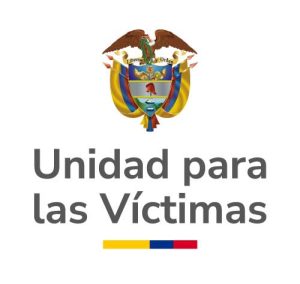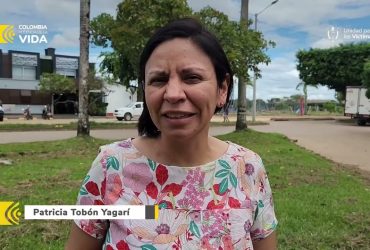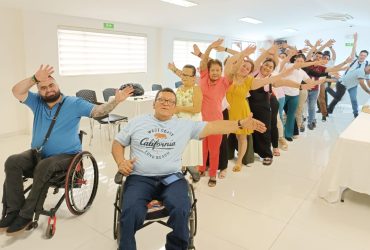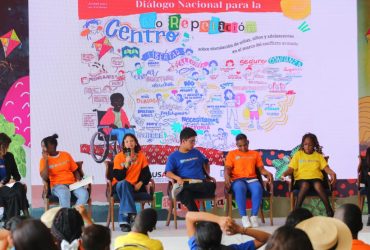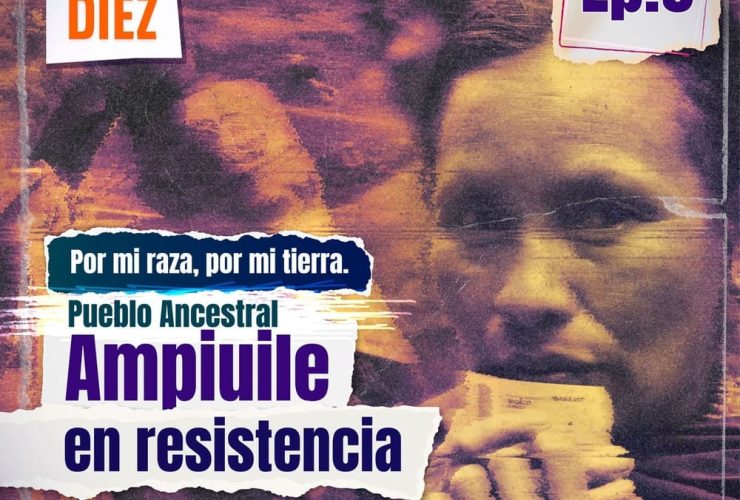By Erick Gonzalez G.
If we open their lives app, they’re a few months apart. One is 17 years old; the other one already displays the provisional ID that credits she is 18. One is a Gemini; the other, Aries. One is air; the other, fire. One was born in Sogamoso; the other, in Bogota. One is shorter in height; the other, a little taller, they’re ten centimeters away. One is thin; the other … is not. One has only one hair color; the other, bicolor. One dresses with light tones; the other, dark. One prefers turtleneck sweaters; the other, the croc tops.
If we pay attention to their search history, one grew up in a close family, without violence; the other, in a dismantled home, with high rates of domestic brutality. One enjoys two sisters; the other, a brother and a sister. One is the minor; the other, the one in the middle.
If we look at their “Likes”, one played everything; the other one, played kitchen, rejo quemado[1], dodge ball and stop[2]. On their playlist, one raves for rock; the other, for bachata. One hardly likes dancing; the other could tik tok to anything. One is the queen of hobbies; the other skips that ad. One plays oboe; the other … not even a doorbell.
Math, Spanish, and Social Studies are one’s favorites; Geometry and Physics are the best for the other. One was nerdy at school; the other wasn´t. One never lost a year; the other’s battery ran out during two school years, both times the battery was discharged due to her parents’ separation.
One has an antivirus for football; the other processes it thanks to an ex who would pay for a FIFA 21 Ultimate Edition with the local team Millonarios.
For one, Patrick Susskind’s Perfume: The Story of a Murderer and Your Soul’s Gift, by Robert Schwartz, stand out on her library; the other follows Satan, by Mario Mendoza.
Fantasy and documentary series are one’s trend; the other one, without problem, binge watches a 10k marathon of The Simpsons or Futurama.
Socially, one identifies as an Instagramer; the other one is bi-social: Facebook and WhatsApp.
One profile belongs to Angelica Maria Corregidor; the other’s is Karen Daniela Sanchez. Both share the consequences of the conflict. Both share the fact their families suffered forced displacement, which, to one of them, was caused by Army and the guerrillas combats near the Mongua municipality, in Boyaca; for the other, the forced displacement was caused due to the guerrilla takeover of El Agrado, in Tolima. For this reason, both are part of the group of 3,154,982 boys, girls and teenagers’ who are displacement victims.
That terror and forced inner exile are part of their RAM. Obviously, that was back in the early 2000s and late 90s, respectively. If they tell it, it’s because one of the girls’ fathers once pressed F5 to update her memories; on the other girl’s case, it was her mother who expanded the information by telling her how they survived under the beds to protect themselves from bazookas, grenades, and gas cylinders from the Farc.
Due to these facts, their families keep several house-moves on their files in the search of the lost peace of mind. Their mothers silenced their relationships with their PDFs (Partner De-finitive): One of the mothers erased only one of her partners from her memory, the girl’s father, and she earns the bread by waiting tables in a restaurant. The other girl’s mother has already blocked two partners in her heart, the first one due to marital violence, the second one for cheating. Despite her broken heart, she discovered she has good cardio: a partner’s absence forces her to jog 17 kilometers on Mondays, Wednesdays and Fridays behind the garbage truck, to fill several sacks with materials to recycle and, thus, support her daughters.
Therefore, Angelica and Karen would like to create a direct access to young people consciences. In this regard, one of them comments that she would do it because her generation “lives in the social network world, where the only thing that matters is looking good … some say I want to be like her, I want to have this and do that, and we don’t realize how important we are as human beings, our essence.”
The other girl retweets.
On her next remark, one of them states: “Young people aren’t interested in researching beyond; you must see the other side, we see the world superficially. In social networks we don’t see violence, we see stereotypes; we don’t see how, for example, ethnic communities experience so much poverty, or how they experience so much displacement, and their art and culture isn’t valued.”
The other girl also shares that message, and she posts: “Today’s young people lack lots of culture; it is necessary to communicate what is happening in the country.”
With that awareness of chiseling a better Colombia and forging a better future, one of them began to study Plastic Arts this semester; the other one hopes to continue her Nursing studies, she had to pause due to the pandemic. It affected the restaurant where she worked to pay for her career, and it also imposed on her the need to buy a computer due to virtuality.
For this reason, one of them, Angelica, has the hashtag: #necesitamosempoderarnosalzarnuestravoz[3]; the other one, Karen, #yoquieroservir[4]. This is their lives’ selfie and their future … Log out.
[1] A popular game. One player hides a belt and gives out clues saying hot or cold depending on how close they get. One a player finds the belt all the other participants must run to a base where they can’t be hit with it.
[2] Several players must write down different kinds of words that begin with the same letter. The words are usually names, last names, colors, geographical places, food, etc. The player who finishes first yells ¡Stop! Then the add the points.
[3] #WeNeedToEmpowerRaiseOurVoice.
[4] #IWantToServe.

